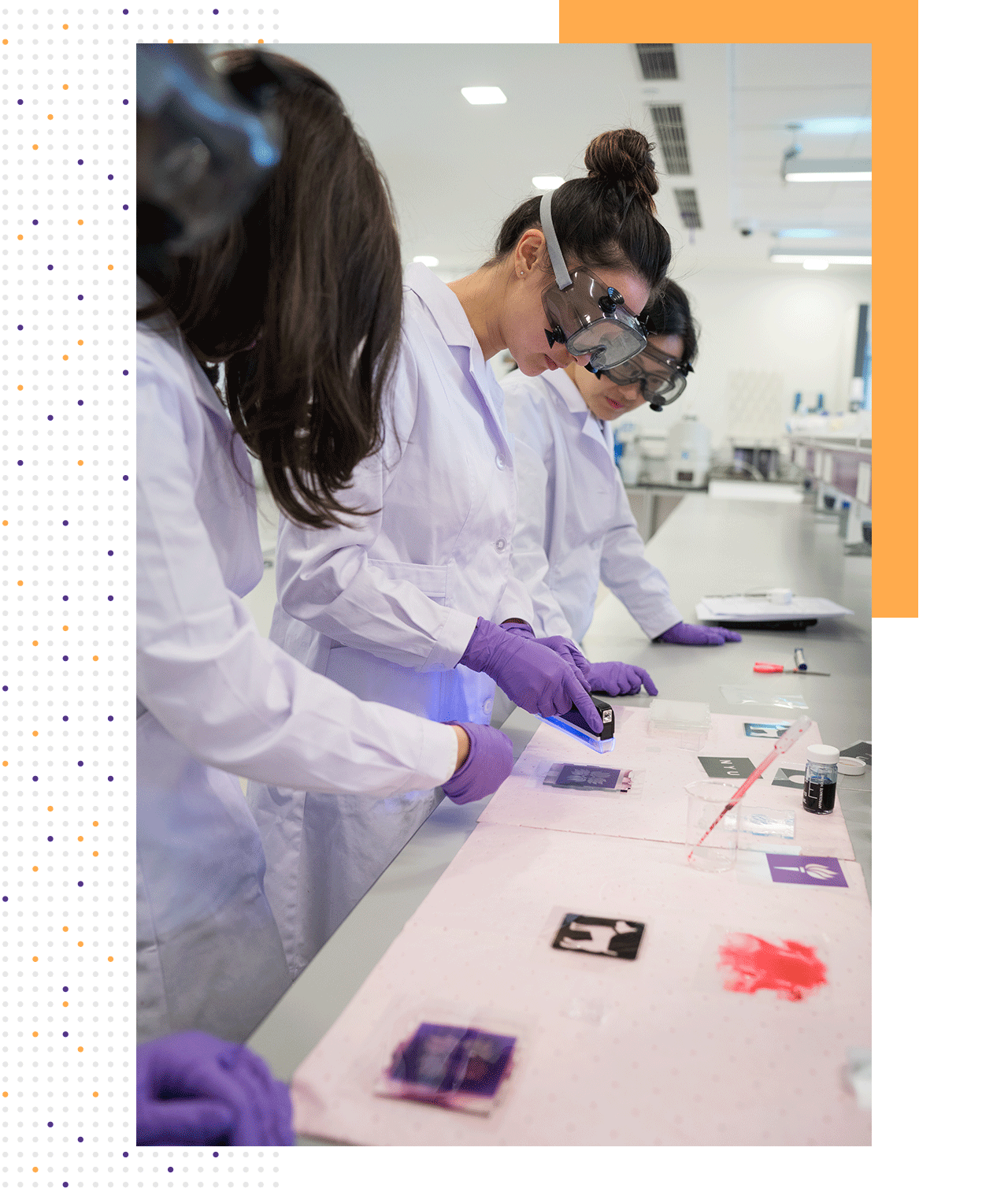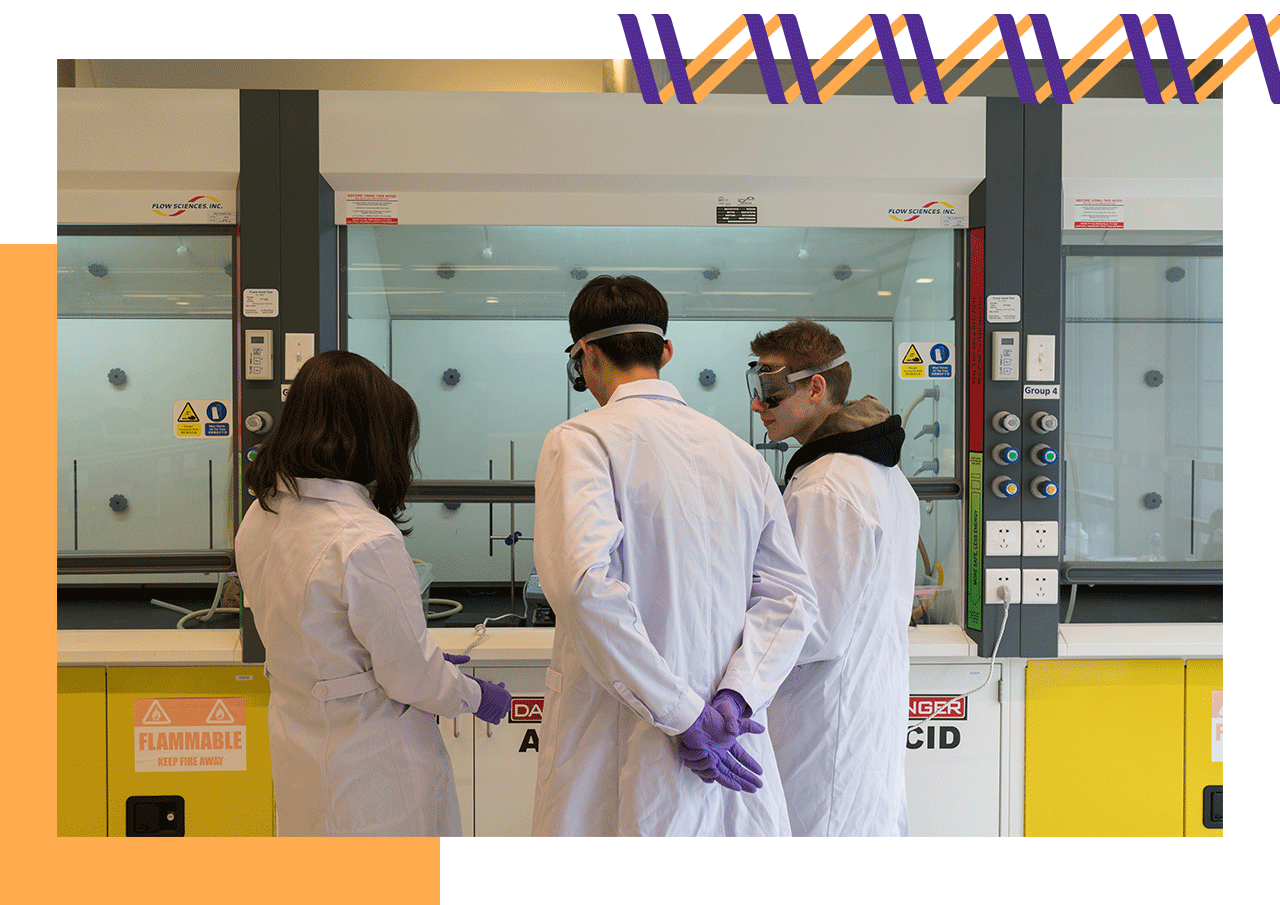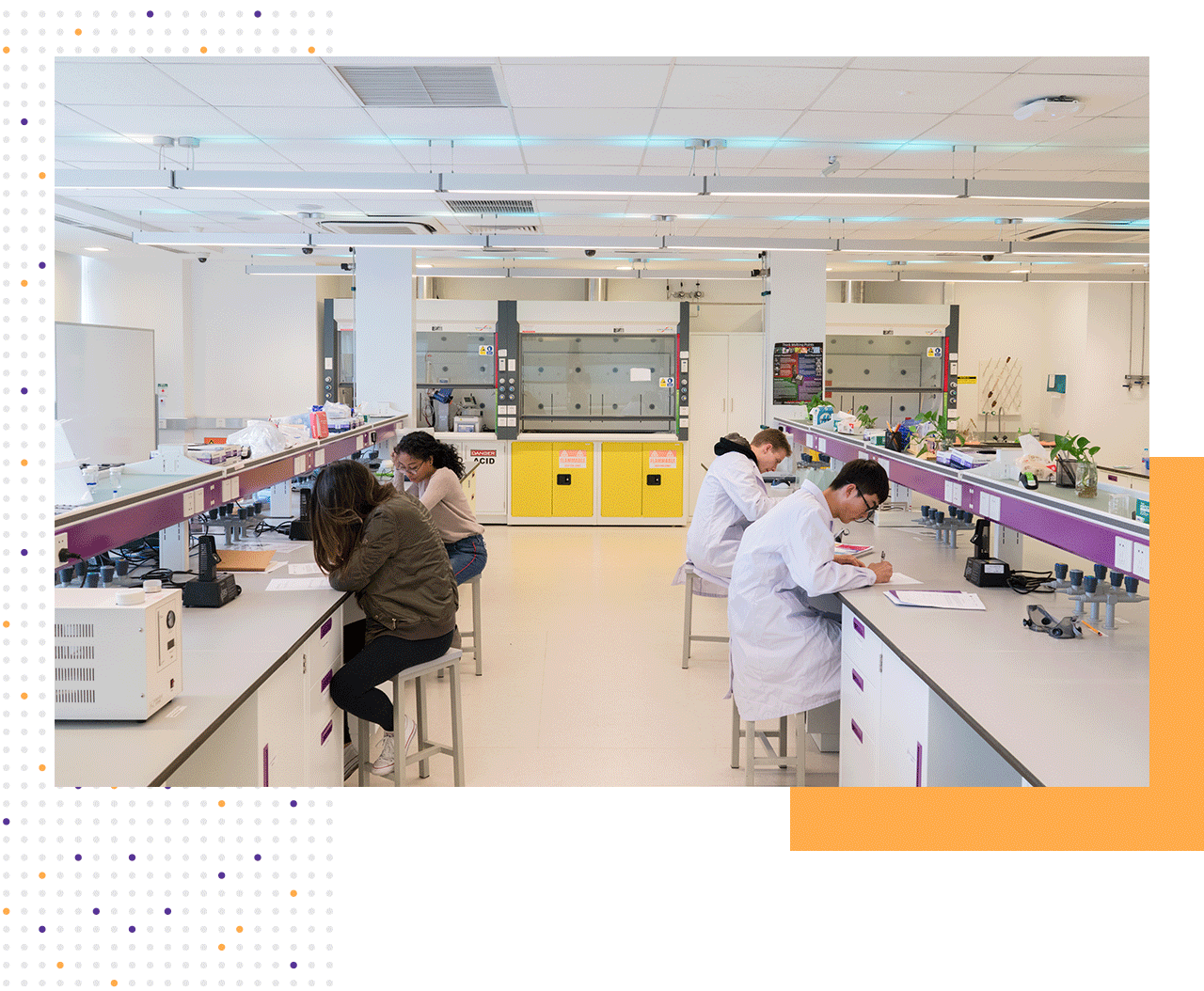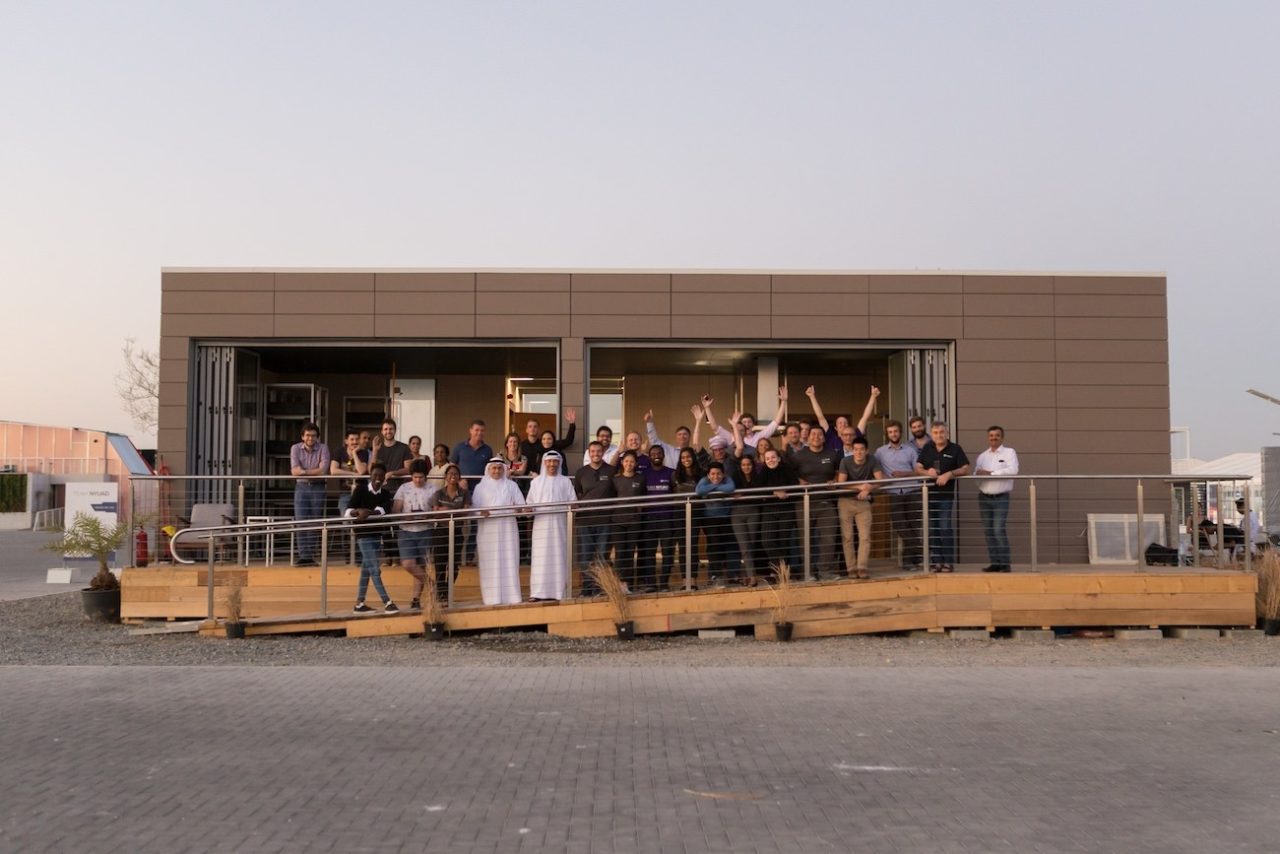
Chemistry is a bridge between the life and physical sciences, and fully understanding it rests at the center of solving major global issues like disease and climate change. On all three NYU campuses, faculty and students challenge themselves and each other to push the boundaries of possibility through chemistry.
Breakthroughs come from deep knowledge combined with flexible thinking. That’s why in the lab “creativity and independence are encouraged from the very beginning,” says Professor William Glover, who is not only an accomplished scientist but also the faculty mentor for Chemistry majors at NYU Shanghai. For example, students can create and execute independent lab projects. Previously, some have examined the unfolding of DNA with temperature. Others have reverse engineered the chemical makeup of a perfume and then attempted to re-create it. And when you want to challenge yourself beyond what you can learn in the classroom, you can get involved in faculty research. Our professors often seek out undergraduate partners.
Professor Glover’s own widely published research uses computer simulations to understand how molecules respond to radiation. For example, he researched how UV radiation damages biological molecules like DNA. In this highly advanced work, he knows that undergraduate research assistants are huge assets. “About a week after starting my chemistry course with Professor Glover, I emailed him to ask if I could do research in his group,” says Andrejs Spuris. He was only a first-year student at NYU Shanghai at the time. “He replied in a matter of a few hours to say yes.” Getting involved can be as easy as asking.

Learning in the Lab
You don’t have to be an expert to join a lab as an undergraduate at NYU. Often, you’ll begin by doing experiments with the lab team who will teach you, through firsthand experience, the skills and background you need in order to actively contribute to the lab’s research. Once Andrejs finished his training, he received his own piece of the project. “I looked at DNA excitation energy and electron affinity calculations using many-body expansion. These calculations normally require extremely high computational resources. But by using many-body expansion, we are seeing if we can complete them more efficiently,” Andrejs says. “This is a piece of the bigger goal of our group. If we can understand how DNA damage occurs at the electron level, we might figure out how to prevent or repair it.”
Now a sophomore, Andrejs feels familiar with how a professional lab is run. And he is ready for more experience. “I already have two other professors who are willing to give me a research spot on their teams,” he says. “If you are proactive, doors will open.”
A Presidential Priority
NYU’s former president Andrew Hamilton is an award-winning, widely published chemist and a member of the American Association for the Advancement of Science. He also runs Hamilton Lab, which calls the NYU Department of Chemistry home. Since coming to NYU in 2016, he has focused on expanding NYU’s research capabilities. What’s more, the amount of research money granted to the University has increased by 43 percent during his tenure. NYU’s national research and development investment ranking also rose from No. 23 in 2016 to No. 18 in 2017, according to the National Science Foundation.
From Desk to Bench: Our Scientist Former President
Find Your Fit
You can major in Chemistry at the College of Arts and Science (CAS), NYU Abu Dhabi, and NYU Shanghai. Or, you can choose Chemical and Biomolecular Engineering at the Tandon School of Engineering or Global Public Health and Science with a concentration in chemistry at CAS. And why choose between biology, chemistry, and physics? You can also complete many of these majors as minors.

A Committment to Inquiry
NYU is home to dozens of research centers and institutes. For example, NYU Shanghai has the NYU-ECNU Center for Computational Chemistry. NYU in New York City boasts the Molecular Design Institute, the NYU Materials Research Science and Engineering Center, and the NYU Langone Health hospital and research complex, to name just a few. And if you’re headed to NYU Abu Dhabi, check out the Structural Biology and Biophysical Chemistry Lab and the Public Health Research Center. When you add in faculty labs, the amount of research happening at NYU is staggering. To learn more, start your search here.



